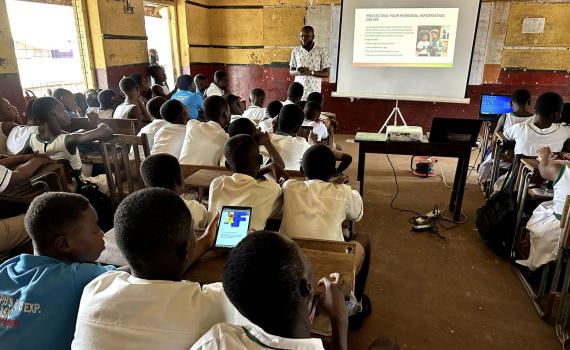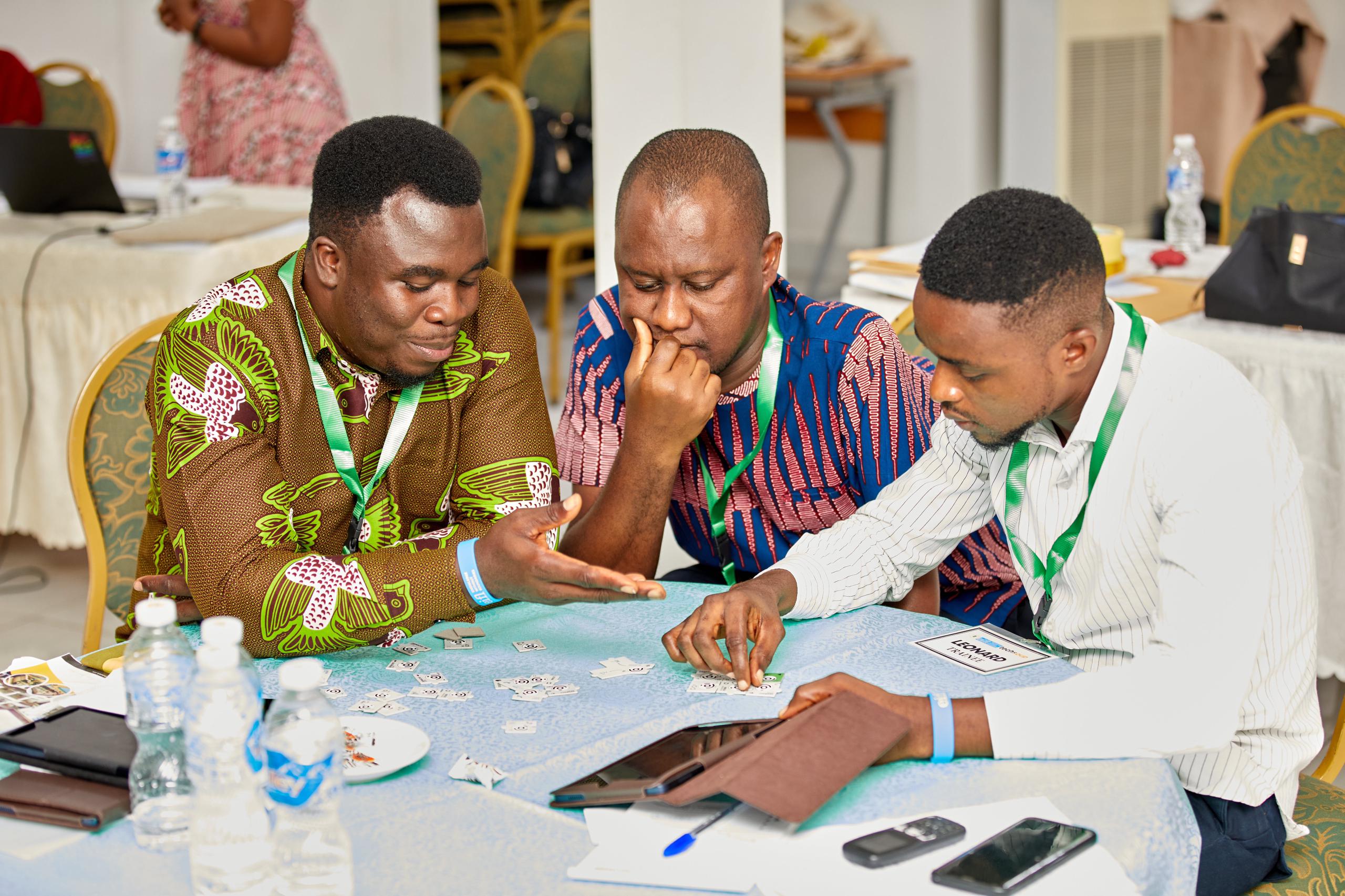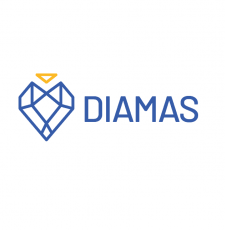
Ugne Lipeikaite, EIFL Public Library Innovation Programme (EIFL-PLIP) Impact Manager, tells how training of public library trainers in Ghana is shifting library perspectives on how to conduct digital literacy skills training.
In March and April 2024, head librarians, and ICT coordinators from 15 regional and district public libraries in Ghana, attended two interactive training-of-trainers (ToT) workshops in Accra organized by EIFL in partnership with the Ghana Library Authority (GhLA). The training is central to the ‘Digital Learning @ Ghana Public Libraries’ project being implemented by EIFL in partnership with the GhLA, which aims to transform the 15 libraries into digital learning hubs - spaces where, guided by librarians, children and youth can come to study subjects that they are interested in, using digital tools and resources.
The ToT was led by the project implementing team, trainers from libraries in Kenya and South Africa, and a guest trainer to introduce the ‘Rangers’s coding app. The head librarians and ICT coordinators learnt new training and facilitation skills, explored open educational resources for use in training sessions in the library or during library outreach classes in schools, and crafted strategies for a programme of impactful digital and mobile literacy training.
Transforming mindsets on digital literacy training
The highlight of the ToT programme was a training session and tournament using the coding game ‘Rangers’, developed in South Africa. ‘Rangers’ is particularly useful for teaching coding in schools that do not have ICT labs or enough computers to go around, and where children learn about ICT in the abstract, without opportunities to learn practical skills. The ‘Rangers’ app, which can work offline, is downloaded to mobile devices (tablets or smartphones) and the children learn coding concepts in a competitive game involving coding puzzles in which ‘rangers’ catch ‘poachers’.
The ToT was not just about providing new skills; it also transformed mindsets on digital literacy training. Participants emerged with new perspectives on the dynamics of training and learning. They learnt alternatives to traditional teaching methods, trying on other training hats – for example, for facilitating and coaching. “It improved my confidence as a trainer,” shared one of the participants. “Now I understand how to listen to my learners and treat them with respect.”
Librarians apply new training methods in schools
Soon after attending the ToT workshops, the newly-skilled trainers began applying the new training methods during outreach visits to schools. In just one month, in almost 30 outreach visits they engaged over 1,000 students aged from 12 to 18. They introduced the students to digital and mobile literacy skills, such as reading using the ‘Read Along’ app, using web browsers, effective internet searching, dealing with fake news and misinformation, online safety and digital wellbeing, and coding.
The training was dynamic. The librarians used ice-breakers and energizers to focus the students’ attention, organized discussions in small groups, and included lots of hands-on practice using tablets, smartphones and laptops brought by the library.
“The training was fantastic. It was a lot of fun for students, and teachers also appreciated the content we covered,” said Ruwaida Mohammed, ICT coordinator at Sunyani Regional Library, who visited three schools.
Several libraries dedicated their outreach visits to online safety, using a resource compiled by EIFL. “We started our outreach with online safety because it is a very important topic. Children were very surprised to learn that they should not post their friends' photos online without their consent,” said Jacobson Cudjoe, head librarian of the National Children’s and Mobile Library.
Since these positive experiences, many schools have asked their local libraries to provide more in-depth training on digital and mobile literacy. Starting in July, libraries will offer facilitated digital learning workshops, in which groups of students will further explore topics they are interested in and learn from online educational resources.
SHARE / PRINT









